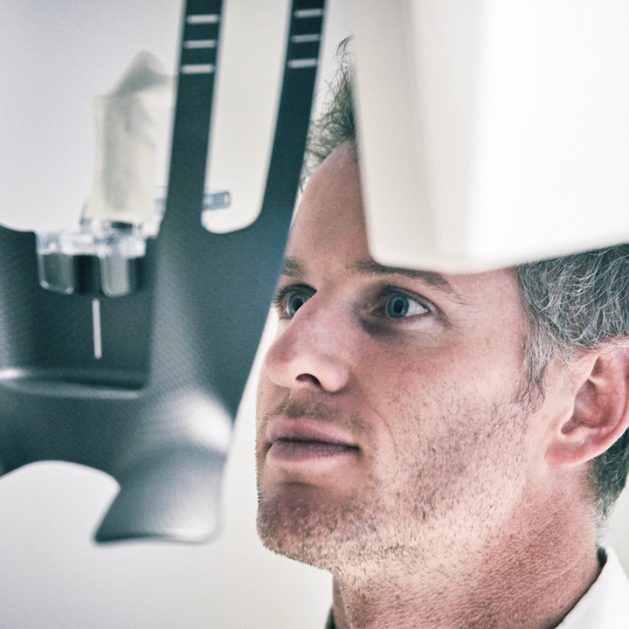The Insurance Distribution Directive (IDD) comes into force on October 1. No idea what it is? Neither had I until I spoke to Nigel Jones, who describes major disruption ahead for the dental plans market.
Nigel has the inside track on this. He’s sales and marketing director at DPAS which together with Practice Plan, another brand owned by the mutual Wesleyan, has a combined market share of about 42%. He was a director at Denplan (53-ish% market share) for 13 years.
Nigel, why should our readers care about the IDD?
I’m afraid it’s yet another bureaucratic headache. I don’t envy dentists these days. It’s intended to protect the consumer by making it harder to sell them insurance products they don’t want. If that sounds entirely laudable, the way it plays out might be counterproductive to patients and dentists.
Dental membership plans are comprised mainly of the service and the dentist, then there is a small accident and emergency insurance element bundled in. From October 1 patients must be given the opportunity to opt out of the insurance and new customers must be able to choose a plan without the insurance element.
The headache is that patients will say, “I’ve no idea what’s best, please help me decide,” at which point if you do you’re in breach of the regulations and could face financial penalties. If any team member says anything to your patient, even your receptionist, you could be in trouble. So unhelpful for the patient and awkward for you.
There are other headaches too: how do you know if an emergency patient is covered or not? How do on call rotas work, with associates on different plan providers? After October 1 you won’t know if a patient has opted out of the insurance so you’ll have to charge them up front.
What are the providers saying?
Denplan hasn’t issued its response yet. It’s in an interesting spot given how historically it weighted the insurance element in its plans to incur the lower IPT [Insurance Premium Tax] tax rate rather than VAT. In anticipation of IDD it’s switched the insurance fee from £1.48 out of about £2 per plan to 60p, and they’re telling dentists the admin fee has risen by 88p. I’m not sure what message that sends out.
We [DPAS] asked the FCA [Financial Conduct Authority] to make an exception for dental plans but they said no. We were worried about the detriment to consumers over what amounts to insurance policies worth just £7 or £8 a year. IDD introduces complexity and confusion — there’s no way the EU was thinking about our small membership plan market in the UK when it was drafted, but the road to hell is paved with good intentions.
Is there a workaround?
DPAS has a simple solution for dentists and patients. It’s a discretionary scheme that allows us to still offer patients compensation in the event of an accident or emergency, so the patient still gets comprehensive cover, just by a different name. Dentists don’t risk breaking regulations because discretionary schemes are not regulated.
It’s already working, we have tens of thousands of patients signed up and it’s going fine. All practices joining us in 2018 have been signed up to it and all pre-2018 clients will be transferred in October.
What’s the catch?
Some people might call it a fudge, and discretionary schemes in dentistry get a bad press because people say the patient isn’t properly covered, but it’s what works. There is a precedent for discretionary schemes in Dental Protection and the Medical Defence Union and elsewhere, so it’s unlikely that the government is going to upset multiple markets by saying discretionary schemes should suddenly be treated as insurance.
There is actually a much deeper problem for both insurers and discretionary schemes in relation to the escalating volume of claims around implants and undiagnosed periodontal disease. I know dentists who had to settle for £50k and £70k out of court for undiagnosed perio because they didn’t keep enough notes.
Everything these days seems like a trap to deprive you of the time you need to keep appropriate notes to not be exposed to complaints. Our solution to IDD is a small step towards reducing the burden on dentists.
Is DPAS ready for the bulk change process?
Actually we’re looking forward to bulk change because we perceive a huge need for it — our own research, published in the coming month, will show that 85% of NHS dentists find it difficult to balance professionalism with work pressures and 50% expect to leave the NHS within five years.
I’ve spoken to many dentists, private and NHS, who say that if they could afford to they’d give up dentistry tomorrow. One young dentist told me she negotiates with herself each night as to whether the clinical compromises she made that day were acceptable. All her peers are on anti-depressants, saddled with debt, fearful of litigation and stressed. I’ve been working in dentistry for 25 years and I haven’t seen it this bad before.

